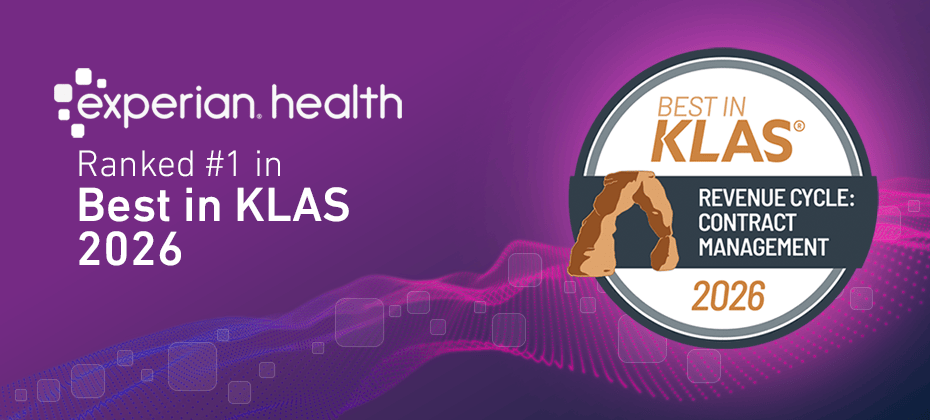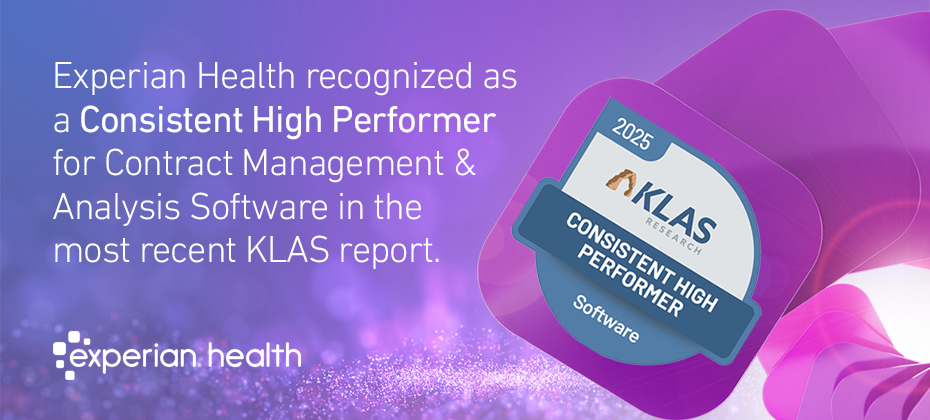
Effective contract management for healthcare organizations is pivotal in this complex and highly regulated world. Healthcare organizations, whether large hospitals, clinics, or individual practitioners, contract with various entities, including vendors, insurance providers, and regulatory bodies. These contracts govern everything from purchasing medical supplies to services reimbursement, making healthcare contract management a critical aspect of running a successful and compliant operation.
What is healthcare contract management?
Healthcare contract management is the systematic process of creating, negotiating, executing, monitoring, and optimizing contracts to ensure compliance, mitigate risks, and achieve healthcare organizations’ strategic objectives. It encompasses various stages, including needs assessment, drafting, execution, and post-contract management.
The importance of healthcare contract management for payers and providers
Healthcare contract management ensures that healthcare organizations, including payers and providers, can efficiently navigate the contracts governing operations. For providers and healthcare contract managers, it’s about ensuring their organization gets paid fairly for services while adhering to complex regulations. For payers, negotiating contracts with healthcare providers helps control costs while maintaining care quality. Tricia Ibrahim, Director of Product Management, Contract Manager Suite, states, “Better healthcare contract management directly impacts provider revenues. That’s why many organizations implement healthcare contract management software. These tools help healthcare providers work smarter and get paid faster.”
Challenges and opportunities in healthcare contract management
The complex payer/provider landscape presents multifaceted challenges for organizations seeking to improve healthcare contract lifecycle management. The intricate web of regulatory requirements, privacy laws, provider-specific reimbursement structures, and shifting payment models adds complexity to contract management. Healthcare providers must navigate through contracts with various stakeholders, including suppliers, payers, and government agencies. Healthcare contract compliance with ever-evolving regulations is difficult in part because most providers manage these complexities manually. Providers seeking to improve healthcare contract management often turn to technology to help.
OrthoTennessee, a multi-location orthopedic practice in Knoxville, Tennessee, with 164 providers, struggled with denied claims, smaller payouts, and a need for more contract management standardization. The organization used Experian Health’s Contract Management tool to improve the accuracy of contract compliance. Today, this healthcare provider credits the software with helping the organization spot changes in payer rules and trends in how they pay.
Experian Health’s Contract Management platform drives significant efficiencies and time savings. It also provides critical data for payer negotiations. In 2022, OrthoTennessee had an 86% appeal success rate, thanks to more streamlined contract management. OrthoTennessee strongly advocates for Experian Health’s Contract Management tool—and they’ve used it for over 16 years.
Navigating the complex landscape of healthcare contract management
The healthcare industry is notorious for its ever-evolving regulatory environment. Healthcare contract managers must stay up-to-date with these changes to ensure contracts remain compliant. Imagine doing this by hand when most healthcare providers deal with hundreds of different payers, each with its contracts, procedures, and paperwork. This lack of standardization slows down the claims process.
With rising healthcare costs, payers and providers are under immense pressure to optimize contracts to maintain profitability while delivering quality care. As claims grow more complex and patient volumes rise, manual healthcare contract management becomes a bottleneck in getting paid.
Healthcare organizations often operate in a highly competitive environment, making efficient contract management a strategic imperative. Failure to manage contracts effectively can result in lost revenue, operational inefficiencies, and strained relationships with key partners.
Managing data-intensive healthcare contracts
One of the most significant challenges in healthcare contract management is the data-intensive nature of these agreements. Payer/provider contracts contain vast amounts of critical information, such as billing codes and reimbursement rates. Managing this data accurately and securely is essential for compliance and successful operations. The sheer volume of contracts in healthcare organizations can be overwhelming, making it challenging to track, analyze, and report on their performance. Manual contract management processes are vulnerable to errors that can have significant financial and legal consequences.
However, these challenges also present significant opportunities. The advent of technology, such as contract management software and artificial intelligence, has revolutionized the way healthcare organizations oversee contracts. These tools offer the potential to automate data extraction, analyze compliance, and streamline contract workflows, significantly enhancing efficiency and reducing the risk of errors.
Frequently Asked Questions
What does a healthcare contract manager do?
A contract manager in healthcare is responsible for overseeing the entire contract lifecycle. Their duties include negotiating contract terms, ensuring legal compliance, monitoring performance, managing amendments and renewals, and fostering stakeholder collaboration. Contract managers play a vital role in optimizing contract efficiency and minimizing risks.
What are the common types of contracts in healthcare?
- Provider Agreements: Contracts between healthcare providers (e.g., hospitals, clinics) and payers (e.g., insurance companies) that outline reimbursement rates and service delivery terms.
- Payer Contracts: Agreements between healthcare payers and providers that govern payment terms, coverage, and network participation.
- Pharmaceutical Agreements: Contracts between healthcare organizations and pharmaceutical companies for purchasing and distributing medications.
- Vendor Agreements: Contracts with vendors providing services, equipment, or supplies to healthcare organizations, ensuring quality and compliance.
Better healthcare contract lifecycle management
Healthcare contract lifecycle management is a comprehensive process encompassing all contract stages, from initial creation to final execution, performance monitoring, and eventual termination. This systematic approach helps organizations maximize efficiency, reduce risks, and ensure compliance with payer contract requirements.
Understanding the contract lifecycle
The lifecycle of an average contract has several phases. Work must be done at each step, and challenges arise even before contract signing. After signing, the healthcare contract manager must follow each payer’s rules closely as they are subject to change.
- Pre-Contract Stage: Healthcare organizations must conduct a thorough needs assessment to define the agreement’s scope before drafting a contract. This phase often involves communication with essential finance, legal, and operations stakeholders. The goal is to go into contract negotiation with a clear sense of organizational goals and where to draw the line.
- Payer Contract Formation: Successful contract formation involves negotiation and drafting that addresses all parties’ unique needs and expectations. Key stakeholders must collaborate to ensure the contract meets legal and regulatory requirements. Standardized templates with clear, concise language minimize ambiguity and lessen legal risks.
- Execution of Contracts: To expedite contract execution, healthcare providers must establish approval workflows and methods for monitoring compliance after signing. This phase may include exchanging required documentation, such as insurance certificates or provider credentials. Notably, adopting e-signatures streamlines approvals, reducing common delays experienced with paper-based processes.
- Post-Contract Management Performance: After execution, healthcare organizations must actively and consistently monitor contract metrics against key performance indicators (KPIs). Providers must identify deviations from expected performance and address them quickly. Keep in mind healthcare contracts often require amendments and periodic renewals. Organizations must also have a standardized process for these changes and ways to manage new contract compliance workflows.
How technology improves the contract lifecycle
Technology plays a pivotal role in improving the entire healthcare contract lifecycle. From contract creation to execution, performance monitoring, and beyond, technology-driven solutions offer a range of benefits to enhance efficiency and improve compliance.
Contract management software has revolutionized how organizations handle their contracts in the digital age. These specialized platforms offer a centralized repository for contracts, making them easily accessible and searchable. Critical features of contract management software include:
- Centralized Storage: Consolidates all contracts into a single, easily accessible database, eliminating the need for physical filing systems or scattered electronic documents.
- Automated Workflows: Reduces delays associated with manual routing and approvals. Electronic signatures further expedite contract execution.
- Version Control: Maintains a clear record of revisions, ensuring users consistently access the latest, up-to-date documents.
- Document Management: Aids collaboration, secure file storage, and document sharing.
- Alerts and Reminders: For contract milestones, such as changes, renewals, or termination dates, helping organizations stay on top of critical events.
AI and automation in healthcare contract management
AI can automatically extract essential contact data, helping organizations efficiently categorize, analyze, and report on their contract portfolio. Natural language processing and machine learning aid in contract risk assessment, compliance checks, and pinpointing critical clauses for review. Automation tools can generate contracts from standardized templates, reducing the time and effort required for contract authoring and negotiation. AI-driven contract review tools help legal and compliance teams identify deviations from standard language, flagging potential issues that need attention. Compliance checks and alerts can also be automated, ensuring that contracts meet changing regulatory requirements.
Data analytics for contract oversight
Data analytics for contract oversight is invaluable for overseeing contract performance and compliance. By employing data-driven insights, organizations can:
- Monitor KPIs to assess whether a contract is delivering the expected value.
- Detect anomalies, deviations from expected patterns, or changes in performance data to identify potential risks and compliance issues.
- Manage costs by analyzing financial data within contracts and identifying opportunities for cost reduction or resource optimization.
- Predict contract performance trends, helping organizations proactively address issues and make informed decisions.
Ibrahim says, “There’s a reason that Experian Health Contract Manager achieved Best in KLAS this year. The burden of proving a claim is underpaid or wrongly denied always rests with the provider. This software finally allows these organizations an opportunity to reduce the $157 billion annuallylost on manual contract management.”
Future of managing healthcare contracts
The future of managing healthcare contracts will be transformational. Technology advancements will revolutionize the standard for healthcare contract lifecycle management. As technology advances, organizations that leverage these innovations stand to gain a significant competitive advantage in their revenue cycle. Some of the future innovations to expect include:
- Telehealth and Remote Contract Management: Telehealth will become integral to healthcare delivery. It will extend beyond traditional video consultations to include remote monitoring, diagnostics, and treatment plans and require a robust framework for contractual agreements between healthcare providers, insurers, and technology vendors. The expanding role of telehealth will necessitate innovative contract management solutions, leveraging technology and automation to ensure efficient, secure, and compliant remote contract management.
- Predictive Analytics and Machine Learning: These emerging technologies will reshape how healthcare providers manage contracts. Predictive analytics will enable organizations to anticipate contract performance trends, proactively identifying potential issues before they escalate. Machine learning algorithms can analyze vast amounts of contract data to uncover patterns and insights that may not be apparent through traditional methods. This predictive capability helps healthcare organizations optimize their contract management strategies, improve negotiation outcomes, and enhance overall operational efficiency. By leveraging these advanced technologies, healthcare providers can ensure compliance, reduce risks, and drive better financial and patient care outcomes.
Empowering healthcare organizations for a successful future
Ultimately, applying technology solutions to healthcare contract compliance and management empowers these organizations to succeed in delivering high-quality care. Healthcare is increasingly complex, and organizations must leverage technology, adopt best practices, and stay ahead of emerging trends. Experian Health’s Contract Management solution allows providers to manage these complexities efficiently and improve their revenue cycle.
Contact us to learn how our Healthcare Contract Management software can help your organization validate reimbursement accuracy, recover underpayments and more.


